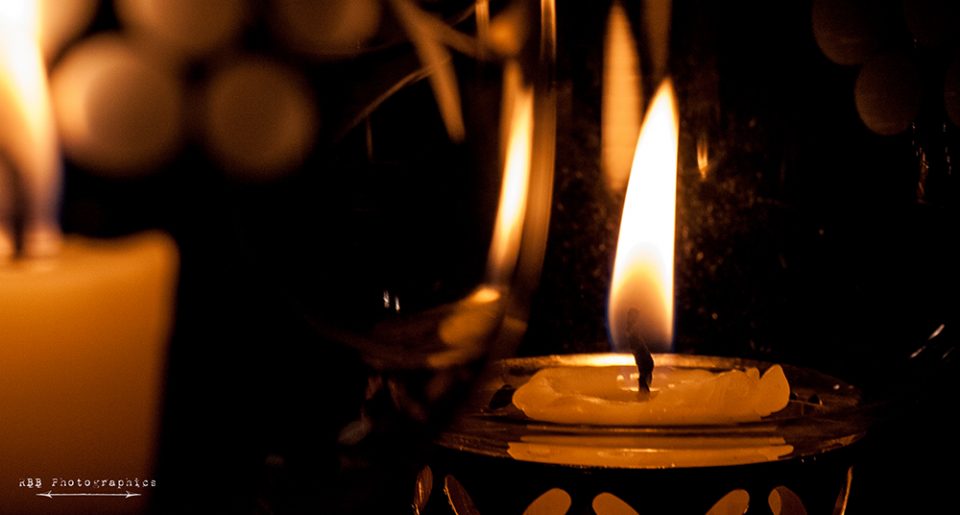Regardless of whether you celebrate Christmas, celebrate a different holiday, or try your best to avoid celebrating at all during the weeks of late December/early January, the feeling in the air is that this has to be The Most Wonderful Time of the Year. Even if it’s not. Even if the past year has been the most difficult year of your life.
A simple internet search will bring up multiple articles and ideas of how to cope with Christmas and I hesitated to add to the mix. However, letting the season go by without a mention also seemed wrong. So here are my thoughts on how grieve well — in spite of it not being The Most Wonderful Time of the Year — for you.
1. Let go of expectations. This Christmas — and I’ll refer to this time of year as Christmas as that’s what I’ve always celebrated — if its the first since the death of your partner will not be Christmas as usual. It can’t be. Holding on to any expectations sets you up for heartbreak.
Try not to compare anything to how things used to be. Focus only on what is unfolding day by day, hour by hour, minute by minute. You’ve likely heard the term mindfulness. Mindfulness just means being present to your life — as it’s unfolding. Mindfulness is simply pulling your mind back from dwelling on the past or leaping into the future.
If you have the energy to socialize, do so — but also be gentle on yourself if you don’t. If there’s a new gift shop you’d like to check out, go. But if shopping feels onerous, exhausting, or overwhelming — simply say that to those who usually expect a gift from you and trust they’ll understand. There will always be next year and the year after.
2. Take time for solitude. Go for that walk alone. Talk to your loved one as if he or she is walking beside you. It’s perfectly acceptable to say aloud, “I miss you. I wish you were here.” The holiday season invariably involves people — often lots of people! As you are grieving, you may need to pull back and carve out alone time. This may be a good time to visit the cemetery or where you scattered ashes. You may wish to go alone or, ask someone with a gentle spirit to accompany you.
3. Tears are ok. Cry, when you need to. So often, as a counsellor, I hear clients say, “I tried not to cry.” Or, even more often, apologizing for crying in front of me. No “sorry” necessary. You cry because your heart and soul is holding pain and that pain requires release.
I once read that if we say, “I feel I’m going to cry” we can put the brakes on our tears. I’m not sure if that works, but if you are uncomfortable showing tears in front of others, try it. Remember though, in most instances, those who love us are accepting of our tears. Tears show we have loved, said goodbye — and now we grieve.
4. Remember the zig-zag of healthy grieving. I cannot stress this concept enough. Healthy grieving is a zig-zag. A moving between allowing ourselves to feel our losses, to connect with and embrace our emotional selves, and take tentative steps into learning to live life without whoever or whatever we are grieving. Even during celebratory times, when there are countless opportunities for grief bursts — Dr. Alan Wolfelt’s term for those instantly painful moments— we need to feel and move, feel and move. Notice both.
5. Receive and accept the help and support of others. Grieving is best done in community, not alone.
Dr. Wolfelt says in his list of the six needs of mourning — both for grieving a death and for grieving the end of a relationship — “Let others help you. Now and always.” Read any of his books (see below) and you will find some variation of his words on “Receiving ongoing help from others.”
Our western culture puts great stock on independence, on “I can do this myself” but the truth is, we can’t. A mindset of “I’ll help you and you help me” with the helping and receiving help done without judgement and with understanding is imperative to healthy grieving — at any time of the year.
And so go into these last days of December with these words, the words I used to bring a recent talk on grief and grieving to a close, “Grieve well, my friends.”
Resources:
Books
Healing a Spouse’s Grieving Heart: 100 Practical Ideas After Your Husband or Wife Dies, Alan D.Wolfelt PhD
Understanding Your Grief: Ten Essential Touchstones for Finding Hope and Healing Your Heart, Alan D.Wolfelt PhD
Website

